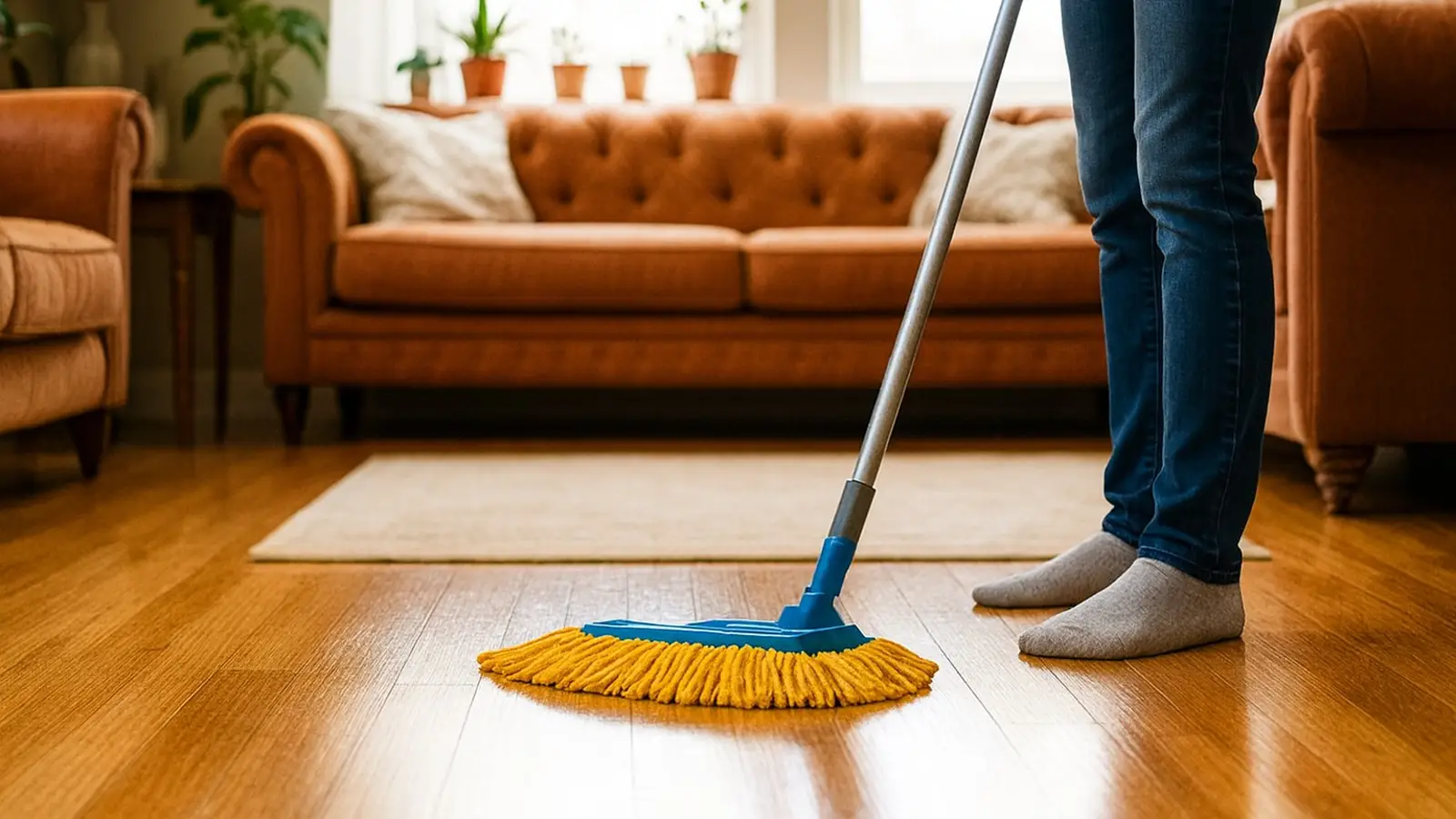https://boda.su/en/posts/id871-floor-cleaning-tips-expert-advice-for-perfect-shine-every-time
Floor Cleaning Tips: Expert Advice for Perfect Shine Every Time
How to Clean Floors Like a Pro: Temperature, Detergent, and Technique
Floor Cleaning Tips: Expert Advice for Perfect Shine Every Time
Discover expert floor cleaning tips on the right water temperature, detergent amount, and tools to keep every surface spotless and long-lasting.
2025-10-17T12:37:13+03:00
2025-10-17T12:37:13+03:00
2025-10-17T12:37:13+03:00
A Simple Task with Hidden Details
Many people assume that mopping the floor is the easiest of chores—just pour some water, add a dash of detergent, and start scrubbing. Yet professional cleaners insist that even this basic routine hides its own set of nuances. From the water temperature to the right amount of cleaning agent, these details can make the difference between a spotless shine and a dull, streaky finish.
Cold Water Fails, Hot Water Harms
As it turns out, both extremes are problematic. Cold water struggles to dissolve grease and lift dust, while overly hot water can damage the surface and leave unsightly marks. The sweet spot, experts say, lies between 40°C and 50°C. At this temperature, dirt breaks down easily without risking the integrity of the flooring.
Less Detergent, Better Results
One of the most common mistakes is using too much detergent. Just a couple of milliliters per bucket are usually enough. Extra soap doesn’t make the floor cleaner—it leaves a sticky residue instead, which often forces you to wash the surface again.
Manufacturers tend to list exaggerated dosages, banking on quicker consumption. In reality, modern cleaning formulas work effectively even in small amounts.
Rinsing Is a Must
Once the main cleaning is done, it’s important to rinse the floor with clean water of the same temperature. This step removes leftover chemicals and helps prevent streaks. It takes little extra time but makes a noticeable difference in the final look.
Each Surface Has Its Rules
Wood, laminate, tile, or linoleum—all require their own approach. Wood dislikes excess moisture and hot water, while tile can easily handle higher temperatures. Knowing your flooring’s needs helps preserve its quality for longer.
A Pro’s Small Secret
Seasoned cleaners often rely on a simple trick: two buckets. One holds the soapy solution, and the other is for clean rinse water. This prevents dirt from spreading back onto the floor and makes the entire process much more efficient.
By following these straightforward yet effective principles, you can achieve spotless results and extend the life of your floors. A little attention to detail turns even the most routine cleaning into a satisfying ritual.
Floor Cleaning, Professional Cleaning Tips, Water Temperature, Detergent Use, Home Cleaning, Floor Care, Cleaning Mistakes, Housekeeping, Cleaning Techniques
2025
articles
How to Clean Floors Like a Pro: Temperature, Detergent, and Technique
Discover expert floor cleaning tips on the right water temperature, detergent amount, and tools to keep every surface spotless and long-lasting.
Generated by Dall-e
A Simple Task with Hidden Details
Many people assume that mopping the floor is the easiest of chores—just pour some water, add a dash of detergent, and start scrubbing. Yet professional cleaners insist that even this basic routine hides its own set of nuances. From the water temperature to the right amount of cleaning agent, these details can make the difference between a spotless shine and a dull, streaky finish.
Cold Water Fails, Hot Water Harms
As it turns out, both extremes are problematic. Cold water struggles to dissolve grease and lift dust, while overly hot water can damage the surface and leave unsightly marks. The sweet spot, experts say, lies between 40°C and 50°C. At this temperature, dirt breaks down easily without risking the integrity of the flooring.
Less Detergent, Better Results
One of the most common mistakes is using too much detergent. Just a couple of milliliters per bucket are usually enough. Extra soap doesn’t make the floor cleaner—it leaves a sticky residue instead, which often forces you to wash the surface again.
Manufacturers tend to list exaggerated dosages, banking on quicker consumption. In reality, modern cleaning formulas work effectively even in small amounts.
Rinsing Is a Must
Once the main cleaning is done, it’s important to rinse the floor with clean water of the same temperature. This step removes leftover chemicals and helps prevent streaks. It takes little extra time but makes a noticeable difference in the final look.
Each Surface Has Its Rules
Wood, laminate, tile, or linoleum—all require their own approach. Wood dislikes excess moisture and hot water, while tile can easily handle higher temperatures. Knowing your flooring’s needs helps preserve its quality for longer.
A Pro’s Small Secret
Seasoned cleaners often rely on a simple trick: two buckets. One holds the soapy solution, and the other is for clean rinse water. This prevents dirt from spreading back onto the floor and makes the entire process much more efficient.
By following these straightforward yet effective principles, you can achieve spotless results and extend the life of your floors. A little attention to detail turns even the most routine cleaning into a satisfying ritual.

